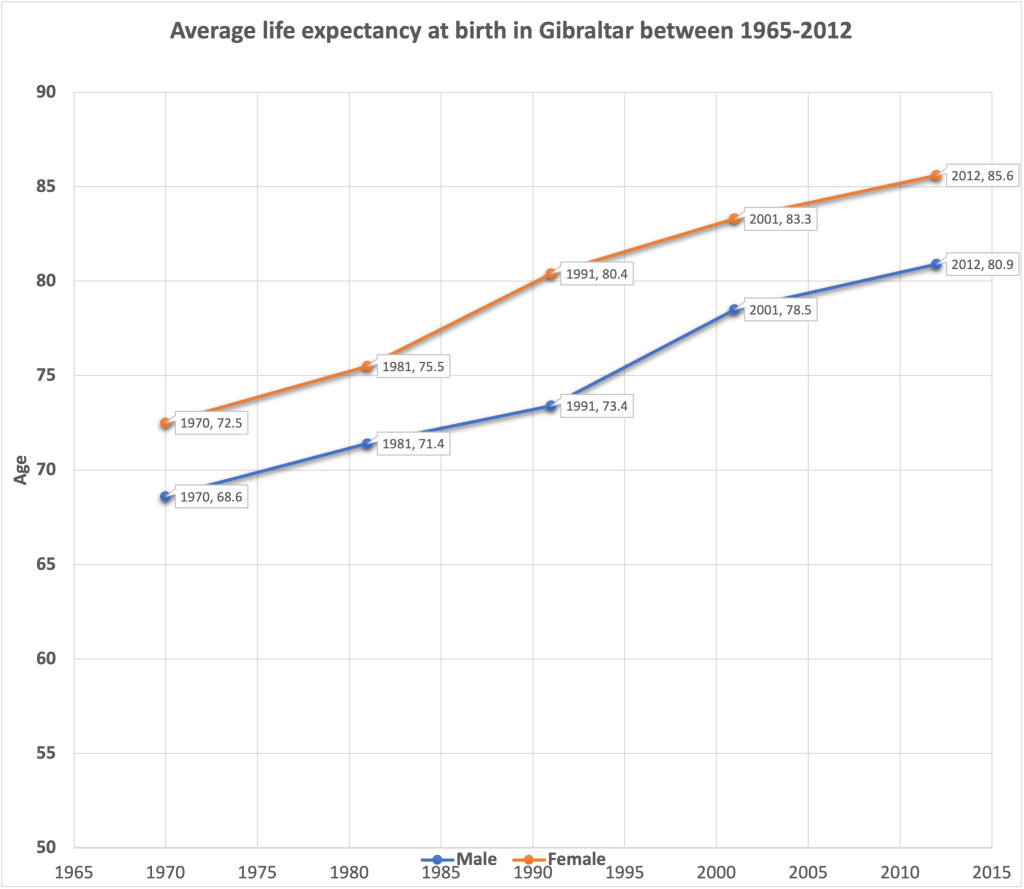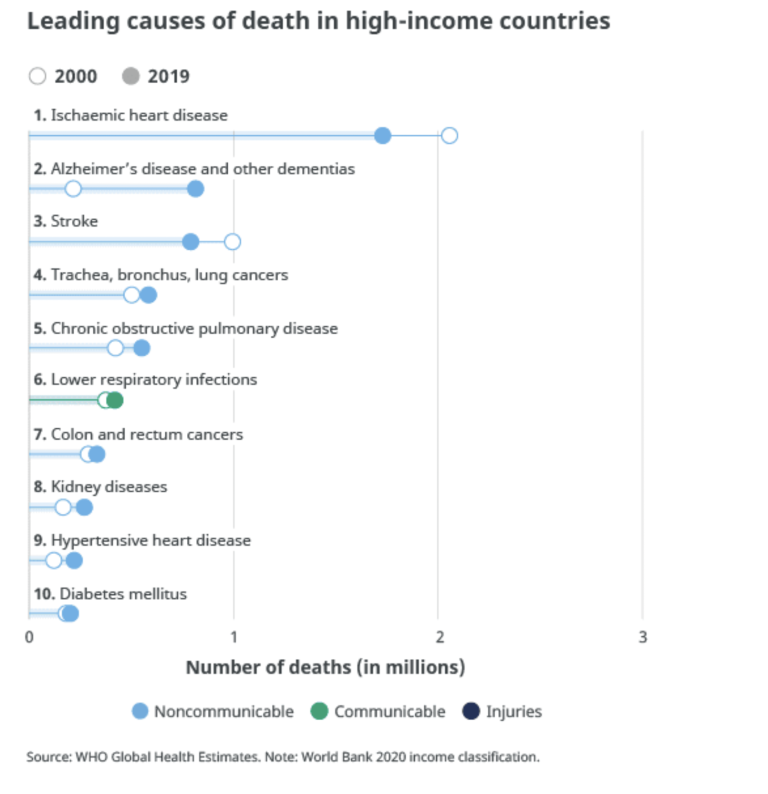The average life expectancy at birth has been gradually increasing since records in 1970 for both males and females. Last records in 2012 show that average life expectancy at birth for females in Gibraltar was 85.6 years, whilst this figure was slightly lower for males at 80.9 years. Updated statistics on life expectancy will be published in future phases on the JSNA.
Gibraltar’s latest figures for life expectancy are significantly higher than the global average life expectancy. In 2019, global life expectancy at birth was 73.4 years.

Life expectancy
The difference observed between average life expectancy at birth between males and females in Gibraltar is observed globally. Biological, behavioural and environmental factors all contribute to the sex differences observed in life expectancy. Differences in chromosomes and hormones between men and women affect longevity. For example, male fat distribution is more likely to accumulate around the abdominal area which is positively related to coronary heart disease in men. Estrogen has been found to have various protective effects on females including for cardiovascular health, blood flow, muscle mass and bone density.
Additionally males are more likely to engage in high risk health behaviours, such as smoking, illicit drug use and binge drinking.
Research has found females are more likely to engage with healthcare services. The Centers for Disease Control reported that women are 33 percent more likely to visit a doctor than men, and women are 100 percent more likely to maintain screening and preventive care. Further research is required in order to understand sex differences in healthcare utilisation within the Gibraltar Health Authority.
Leading causes of death
The Gibraltar Health Authority is currently working on analyzing statistics in order to understand the leading causes of death in Gibraltar. These findings will be updated in future phases of the JSNA. Gibraltar’s leading causes of death are likely to reflect similar findings to other developed and high income countries.
The top global causes of death, in order of total number of lives lost, are associated with three broad topics:
- Cardiovascular (ischaemic heart disease, stroke),
- Respiratory (chronic obstructive pulmonary disease, lower respiratory infections).
- Cancer
- Neonatal conditions – which include birth asphyxia and birth trauma, neonatal sepsis and infections, and preterm birth complications (World Health Organisation).
Increased cardiovascular deaths observed in developed/high income countries can be attributed to changes in lifestyle. Societal changes mean we are experiencing fewer opportunities to integrate physical activity into our day to day lives, and are missing out on the health benefits of being physically active. Although we are moving less, obesogenic environments provide easy access to high calorie, easy access food. The combination of these factors results in an energy surplus.An unhealthy weight, unbalanced diet and lack of physical activity can be directly linked to heart disease, stroke, diabetes, and some cancers.


